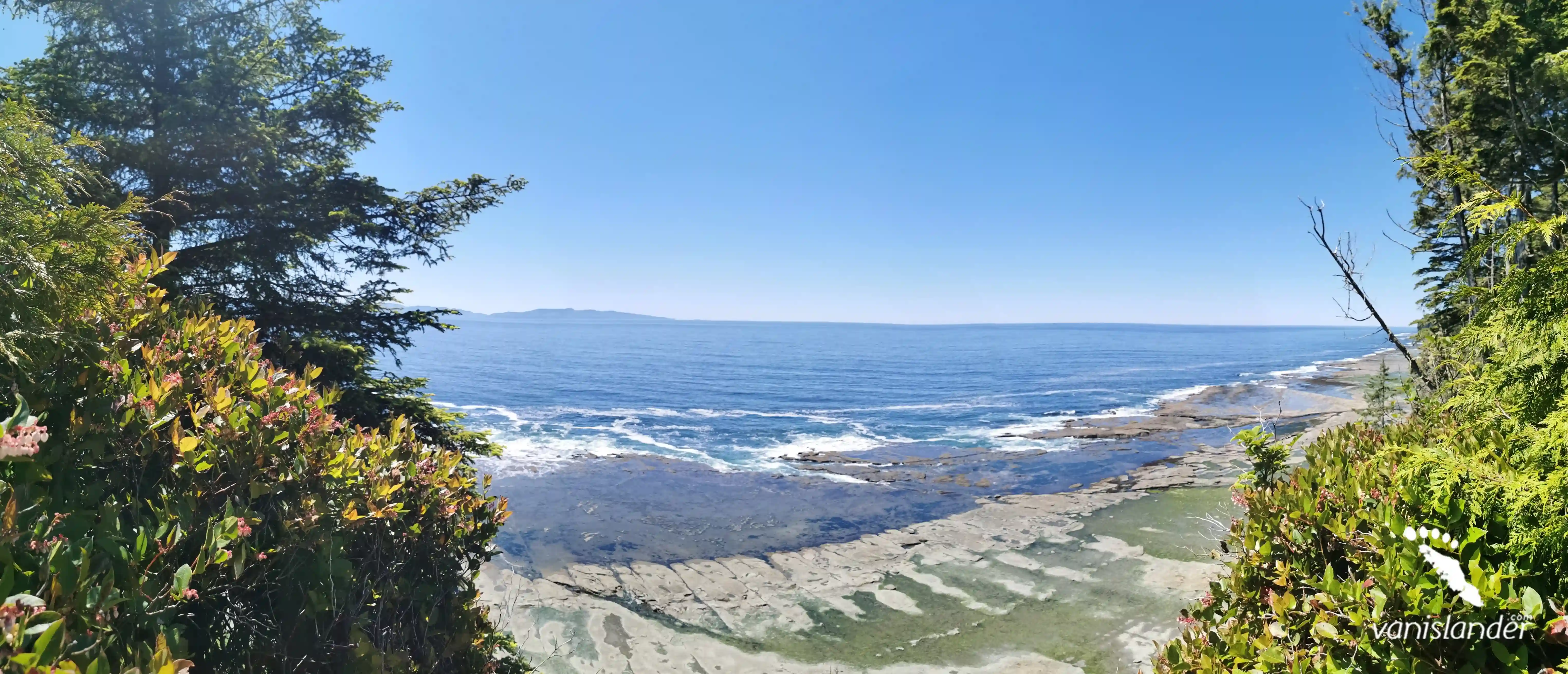
Elkhorn Mountain is located in the Elk River Mountains of the Vancouver Island Ranges on central Vancouver Island, British Columbia, Canada. Elkhorn Mountain is the second-highest peak on Vancouver Island at 2194 m (7198 ft.) elevation. It is second only to the Golden Hinde, which sits 15 km (9.3 miles) to the south at 2198 m (7211 ft.) elevation.
Elkhorn Mountain is one of the first mountains that appear on the horizon of Strathcona Provincial Park. The mountain is visible from Highway 28 between the Gold River village and Campbell River city. The sharp and striking Elkhorn Mountain peak had been known as "Strathcona Matterhorn" until it was decided to be known as Elkhorn Mountain since it was sharply towered over Elk Valley.
Elkhorn Mountain is one of the most accessible mountains on Vancouver Island. The access is via Elk River Trailhead. It takes a one-hour drive from Campbell River to get to the trailhead and an hour's walk across the Elk River, where ascend starts. There are at least eight routes to ascend Elkhorn Mountain worth hiking and climbing. Atop of the Elkhorn Mountain, the commanding views of mountain peaks surrounding overlooking the Pacific Ocean to the west and the Strait of Georgia to the east are rewarding, as well as splendid Strathcona Provincial Park.
Visitors have opportunities to see various wildlife creatures and plant species. There can be seen Douglas fir, amabilis fir, western redcedar, grand fir, mountain hemlock, western hemlock, and creeping juniper. Beautiful birds garnish the area of Elkhorn Mountain and Strathcona Provincial Park, including red-breasted nuthatch, Steller's jay, chestnut-backed chickadee, winter wren, kinglet, blue grouse, white-tailed ptarmigan, Canada jay, and ruffed grouse. The area is also home to wolves, black bears, Roosevelt elks, marmots, black-tailed deer, and cougars.
Elkhorn Mountain is located on central Vancouver Island, 15 km (9.3 miles) north of Golden Hinde Mountain. Elkhorn Mountain lies within Strathcona Provincial Park between Donner Lake, 10 km (6.2 miles) to the southwest, and Buttle Lake, 15 km (9.3 miles) to the east.
The nearby "Elk River Trail" is one of the most popular destinations on Vancouver Island and is accessible via Elk River Trailhead with an hour's drive from Campbell River. The trail is impressive, meandering through the lush forest, past beautiful waterfalls and crystal clear mountain streams. There are two campsites along the lovely Elk River with bear caches and pit toilets. The trail ends at Landslide Lake, where you will find yourself at Mt. Colonel Foster's base and the south face of Elkhorn Mountain as your backdrop. The breathtaking view of Landslide Lake and pillared Mt. Colonel Foster makes everyone fascinated. The Landslide Lake is a fragile wilderness; hence, no camping is allowed, and care to leave no trace should be taken.
Buttle Lake would be a perfect spot for outdoor enthusiasts offering several recreations as fishing or paddling in the lake's freshwater. Campers can camp in Buttle Lake designated campsites and stroll along the lake to enjoy the beauty of Strathcona Provincial Park's nature.
Two beautiful Lupin Falls and Myra Falls are located along Buttle Lake. The routes to the waterfalls pass along beautiful lush forests and lakes. There are opportunities for seeing western red cedar, Douglas fir, and grand firs. The secluded and pleasant environment of waterfalls is worth stopping for a while.
Della Falls, which is one of the highest waterfalls in British Columbia, Canada, is located within Strathcona Provincial Park. The beautiful Della Falls has a drop of 440 m (1443 ft.) over three cascades. Strathcona Provincial Park features several viewing platforms to see gorgeous waterfalls, including Lady Falls, Karst Creek, Lupin Falls, Lower Myra Falls, and Upper Myra Falls. There exist chances for seeing animals and birds as Bald eagles, cougars, black bears, Roosevelt elks, Trumpeter swans, white-tailed ptarmigan, black-tailed deer, squirrels, and whiskey-jacks.
White Ridge Provincial Park is 10.6 km (6.5 miles) to the west of Elkhorn Mountain. The park is known for its extensive cave system and karst surface that can be easily seen. It protects deer and Roosevelt elks habitat with old-growth forest offers several opportunities for wildlife viewing.
The city of Campbell River is located 47 km (29.2 miles) northeast of Elkhorn Mountain and the village of Gold River 16 km (9.9 miles) west of the mountain.
Getting to Elkhorn Mountain is possible from at least eight routes. It is also possible to access Elkhorn Mountain via Elk River Trailhead.
Getting to Elk River Trailhead from Nanaimo:
Getting to Elk River Trailhead from Nanaimo is via BC-19 N and Gold River Hwy/BC-28 W. It is 226 km (140.4 miles) and takes about 2 hours and 35 minutes.
Head west on Fitzwilliam St. After 800 m (2624 ft.), continue onto Third St for 1.9 km (1.1 miles). Continue onto Jingle Pot Rd for 650 m (2132 ft.). Turn right onto BC-19 N (signs for Campbell R). Drive 151 km (93.8 miles) and turn left onto Island Hwy/BC-19A N (signs for BC-28 W/Gold River). After 150 m (492 ft.), continue onto Campbell River Rd/Gold River Hwy/BC-28 W for 47.3 km (29.3 miles). Turn right to stay on Gold River Hwy/BC-28 W and drive for 23.6 km (14.6 miles). Elk River Trailhead will be on the left.
Getting to Elk River Trailhead from Victoria:
Getting to Elk River Trailhead from Victoria is via Trans-Canada Hwy/BC-1 N and BC-19 N. It is 336 km (208.7 miles) and takes almost 4 hours.
Take Government St and continue for 1.2 km (0.7 miles) to Trans-Canada Hwy/BC-1 N. Follow Trans-Canada Hwy/BC-1 N and BC-19 N and drive for 264 km (164 miles) to Island Hwy/BC-19A N in Campbell River. Drive to Gold River Hwy/BC-28 W and continue for 71 km (44.1 miles) in Comox-Strathcona D. The Elk River Trailhead will be on the left.
The designated hiking trail to reach Elkhorn Mountain is "Landslide Lake Via Elk River Trail." The trail, which is 21.2 km (13.1 miles), ends at Landslide Lake. It is an out-and-back trail in Strathcona D, British Columbia, Canada gaining an elevation of 1027 m (3369 ft.). It is lightly trafficked out and rated as difficult, meandering through the old-growth forest with gorgeous wildlife. The pass is primarily used for hiking, camping, running, and backpacking. The best time to hike the trail is from June through August.
Elkhorn Mountain, formerly known as Strathconas' Matterhorn, was first ascended by the members of the Alpine Club of Canada, Albert MacCarthy, A.O Wheeler, D.A. Gillies, Edward Wheeler, J.R. Robertson, L.C. Wilson, A.R. Hart, H.O. Frind, and F.A. Robertson in 1912.
The Elkhorn Mountain's notable ascents include the first ascent North Ridge in 1972 by Stuart Wazny, Tom Muirhead, Joe Bajan, and Dave Smith. The North Face ascent was in 1977 by Peter Busch and Joe Bajan. The first Northwest Ridge winter ascent was in 1968 by Alastair Watt and Peter Busch and a 4-hour speed ascent in 1992 by Lindsay Elms.
The area is home to the traditional territory of the Mowachaht/Muchalaht, the Nuu-chah-nulth First Nation. The legends and culture of these people are rooted in the mountains and lakes throughout the area.
The area around the magnificent Elkhorn Mountain, with its vista of surroundings overlooking the Pacific Ocean, the Georgia Strait, and Strathcona Provincial Park in all its glory, offers several outdoor recreations for mountaineers and visitors. Climbers will have a second to none experience climbing the basaltic Elkhorn Mountain.
Several hiking trails exist near Elkhorn Mountain within Strathcona Provincial Park as "Lupin Falls Trail" and "Lower Myra Falls Trail," winding around beautiful lakes and tarns through old-growth forest.
The area is home to various wildlife creatures and plant species.
You can also enjoy beautiful waterfalls and the expansive cave system at White Ridge Provincial Park, offering ample wildlife viewing opportunities.
Buttle Lake is a paradise for outdoor enthusiasts to be entertained by several activities, including fishing, windsurfing, and skiing. Also, swimming is possible in all lakes within Strathcona Provincial Park except for Kwai Lake. The heavenly Buttle Lake is a perfect place to spend a whole day canoeing and kayaking. Cautious should be taken due to the lake's being subjected to the strong winds.
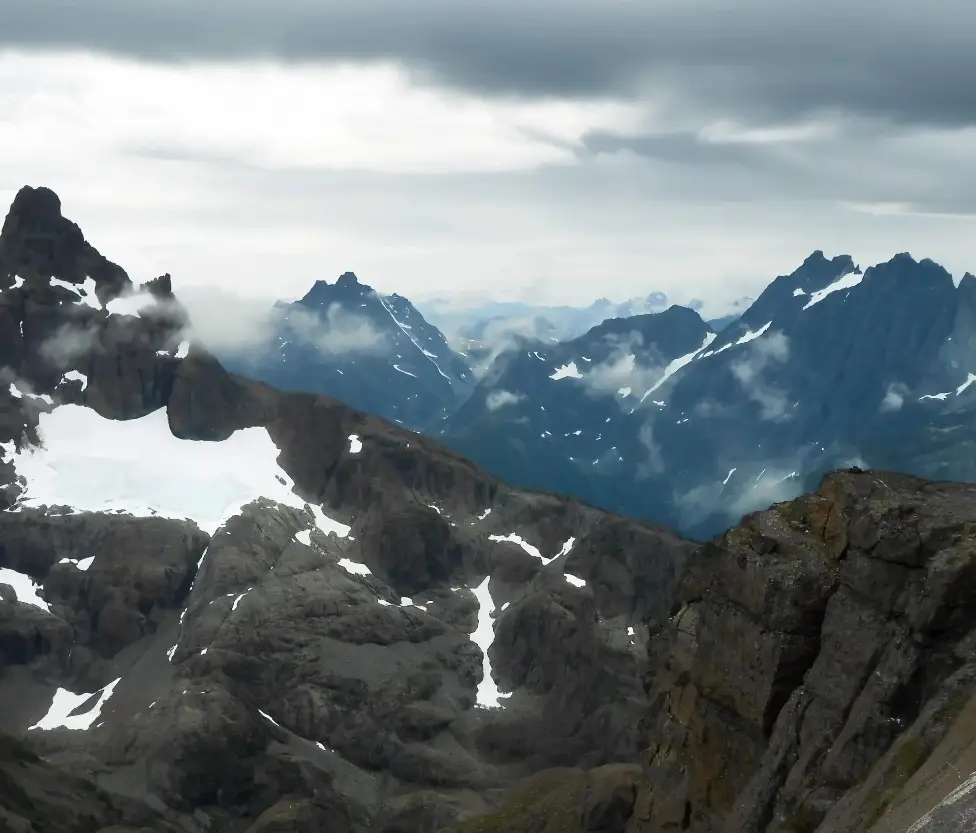
Kings Peak is a mountain peak that stands guard high in the Strathcona Provincial Park on central Vancouver Island. It is a double-peaked glacial mountain at 2065m (6775 ft.). The eastern peak is the higher one called Kings Peak, and the western one is Queen's Ridge. A demanding trail makes it to the summit of Kings Peak, offering scenic views. The trail starts at 304.8 m (1000 ft.), climbing 1737 m (5700 ft.) over scree fields, tree roots, undulating hills, gullies, and meadows. The first and lower portions of the trail are well-maintained gives the chance to warm up. It passes a couple of waterfalls and gorgeous streams where you can take a breather.
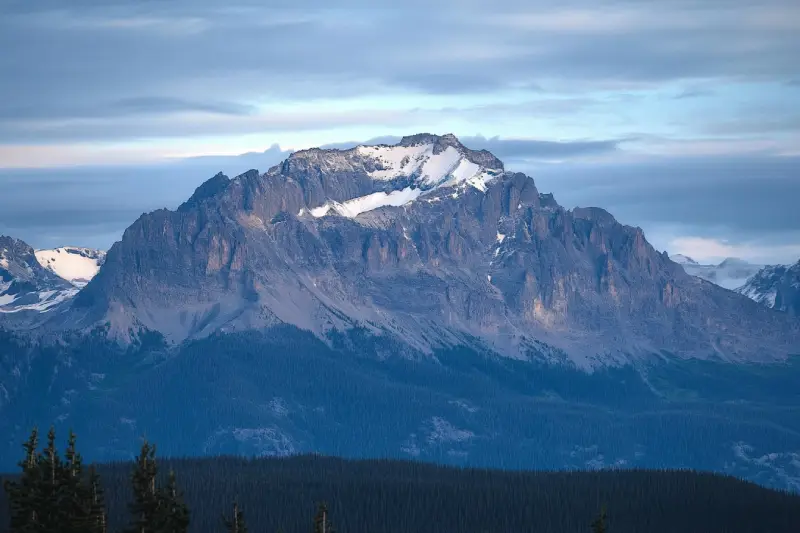
Mount McBride with 2083 m (6834 ft.) height is the seventh highest mountain on Central Vancouver Island. Atop Mount McBride, the 360° panoramic view of Strathcona Provincial Park is rewarding, besides vistas of the highest mountains on Vancouver Island, including Golden Hinde, Mt Colonel Foster, King's Peak, Elkhorn Mountain, and Rambler Peak.
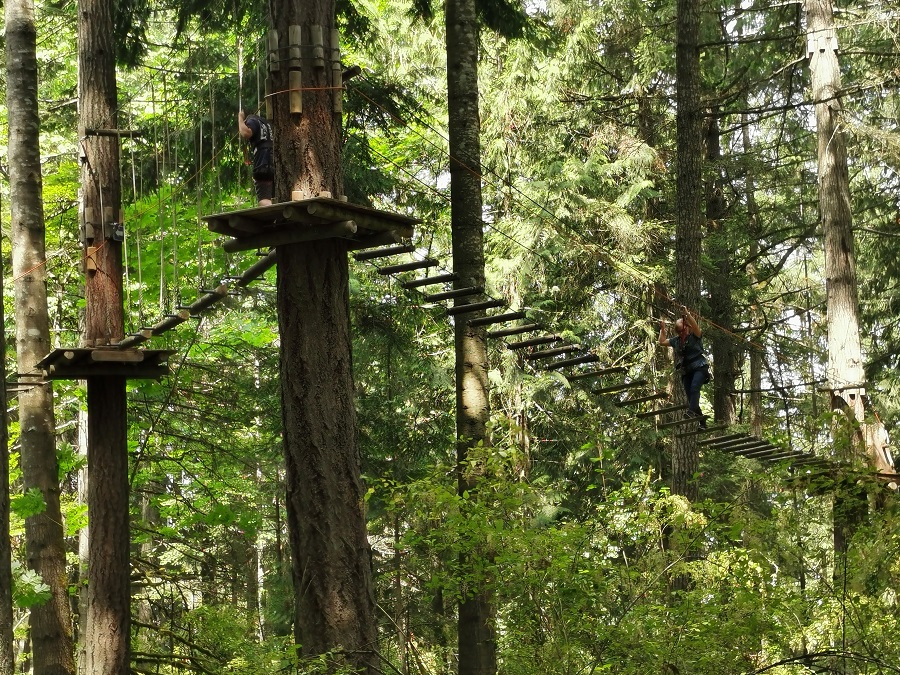
Elkhorn Mountain is located in the Elk River Mountains of the Vancouver Island Ranges. It is the second-highest peak on Vancouver Island at 2194 m (7198 ft.) elevation. Atop of the Elkhorn Mountain, the commanding views of mountain peaks surrounding overlooking the Pacific Ocean and the Strait of Georgia are rewarding, as well as splendid Strathcona Provincial Park.
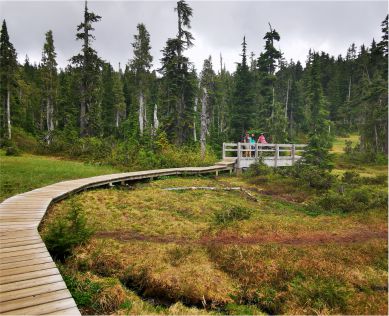
The Pierce Range is small and steep-sided in the center of Vancouver Island. Hikers can pass through trees covering steep hills packed with bountiful wildlife and colourful birds winding around lakes and tarns along creeks and rivers. Up at the peaks, the scenery is surrounded by mountains. Spectacular views overlooking the Muchalat channel and Victor Island is inspiring.
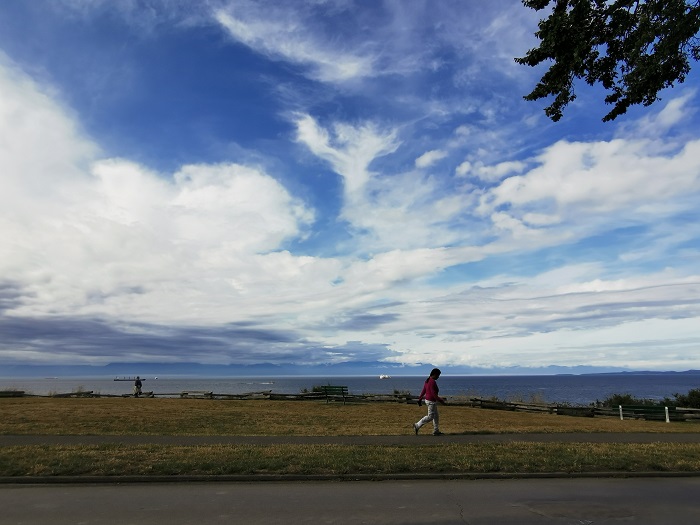
The Elk River Mountains is a group of rugged mountains in Strathcona Provincial Park suitable for camping and outdoor activities. Elkhorn Mountain is the highest peak of the mountains and the second-highest peak on Vancouver Island. It is an extraordinary destination for professional and amateur climbers; the difficulty is from simple to somehow challenge slopes.
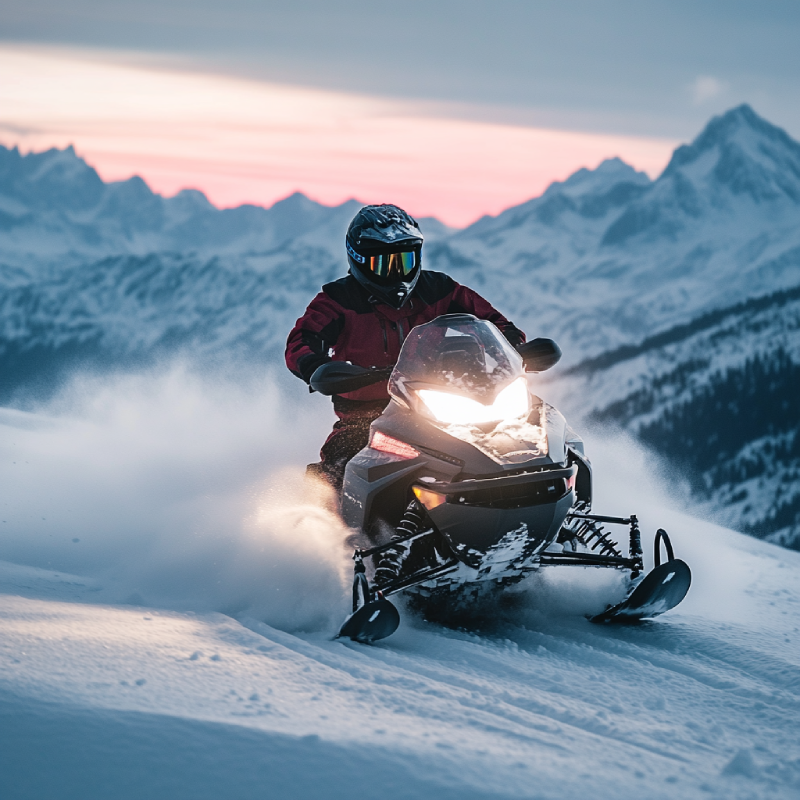
As one of the highest points of Vancouver Island, Mount Adrian offers great snowmobiling, among other winter activities. It has two summits that feature Strathcona Provincial Park in every direction—looking for a place to have winter excitement? Nowhere is better than Mount Adrian.
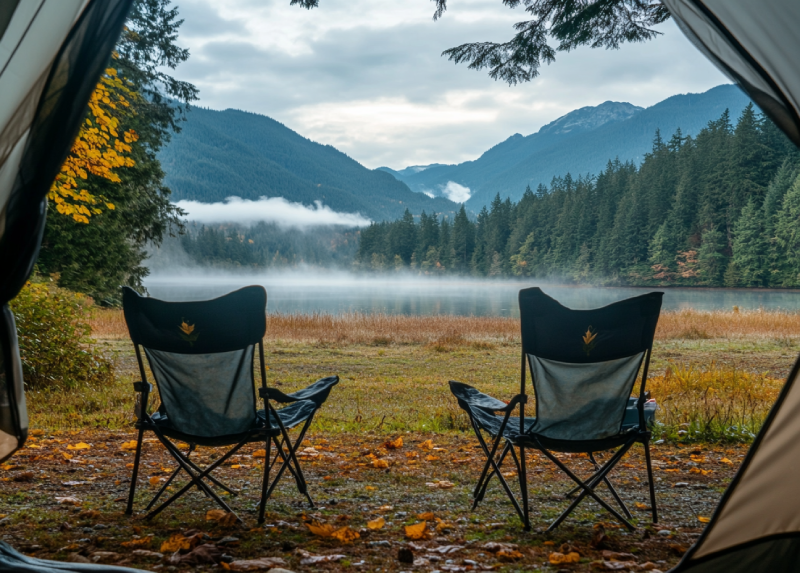
Home to many campsites with all kinds of facilities and services right on the shoreline, Buttle Lake campground offers you the best opportunities to explore the shore. There you can do a lot of activities and enjoy seeing marine creatures.
Annually, the campground welcomes RV and vehicle campers. Also, you can have a good time camping in your tents.
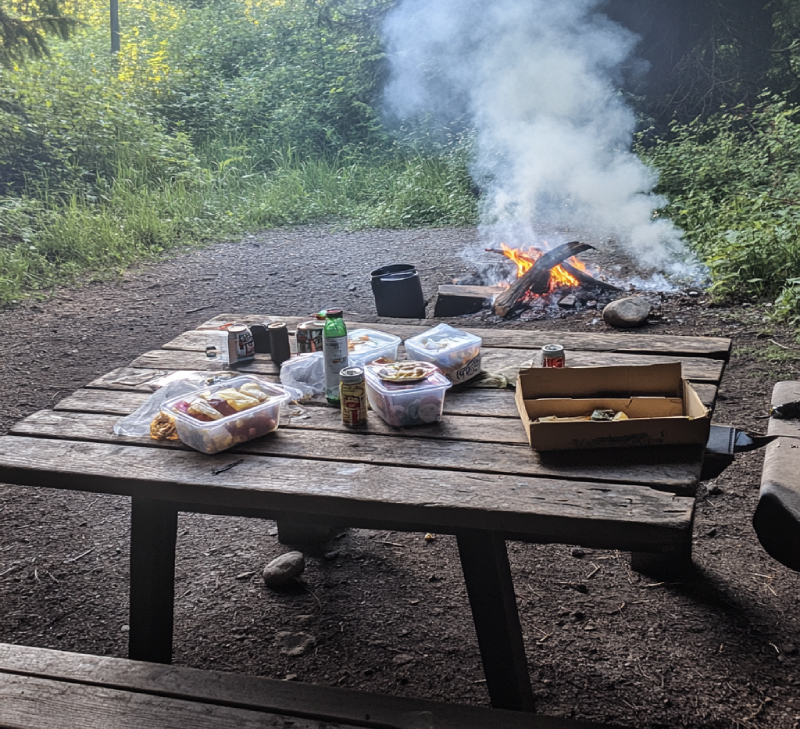
Camping in Ralph River Campground offers a bit more comfortable experience of exploring the park. It's adjacent to Buttle Lake, with numerous campsites all along the glorious shoreline of it. It is where you will feel a sense of being in the wilderness with beautiful sights and spectacular views from several sites over the valleys.
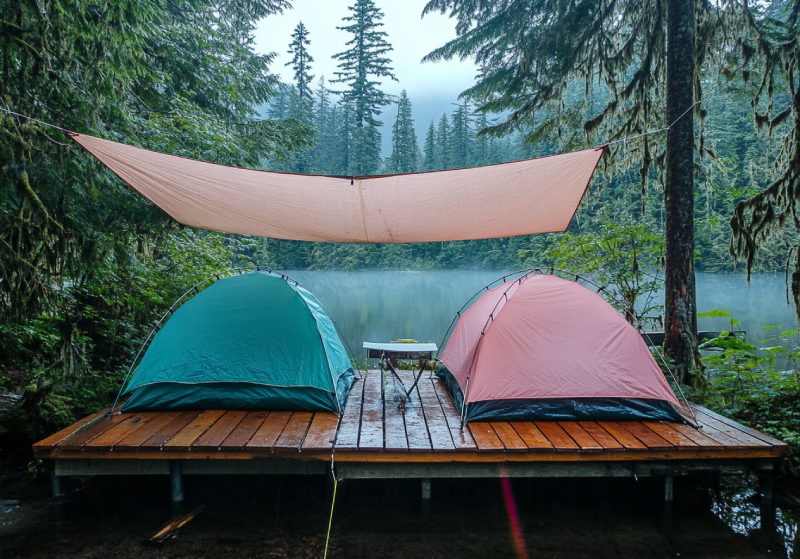
Located in the Strathcona Provincial Park near Bedwell Lake, camping is possible in a nice backcountry campground on Baby Bedwell Lake, set in the lush forest surrounded by majestic mountains. Beautiful alpine forest, perfect swimming, breathtaking view of the trail, small ponds and lakes surrounded by glacial mountain peaks are some of the area's attractions. They are enough to fascinate visitors and campers.
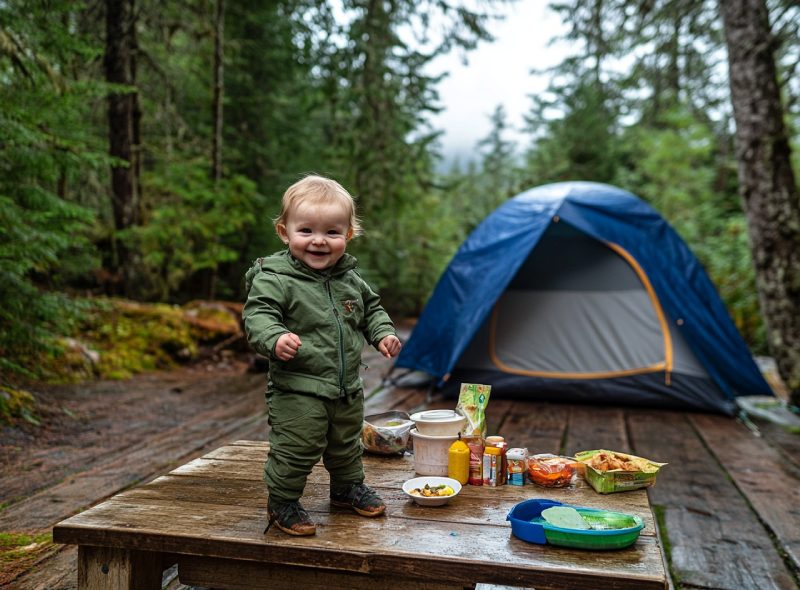
Known as the base camp to explore the area, Bedwell Lake Campground comprises excellent tent campsites. There you can climb surrounding mountains and hike gorgeous, well-maintained trails. Bedwell Lake Campground would be excellent for backcountry adventures. It has lovely glacial mountain views.
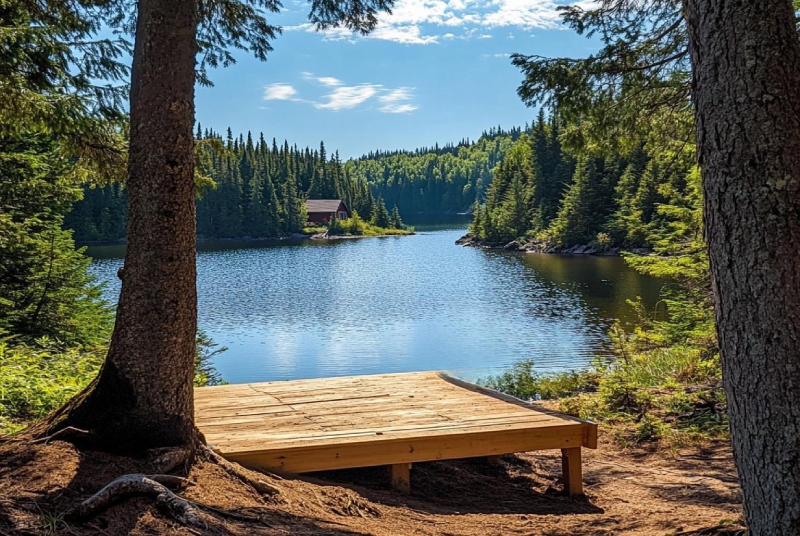
The Croteau Lake Campsite is the first backcountry group site accepting reservations, Located within Strathcona Provincial Park in Forbidden Platea. You will have to hike into this lovely remote campground which features a brand new yurt. Nestled in the sub-alpine of Strathcona, Croteau Lake Campsite is surrounded by jagging glacial mountain peaks, and you will experience a sense of peace and seclusion.
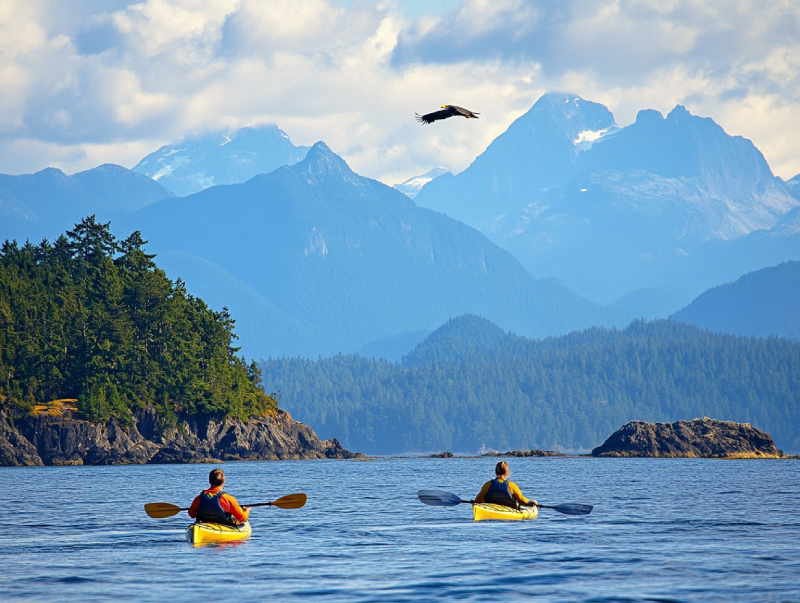
To be a storyteller of paddling adventures, do not leave out Bligh Island Marine Provincial Park. This stunning historical park leaves you speechless about its undeniable opportunities for kayaking and canoeing. Bligh Island Marine Provincial Park is known for its coastal forests and marine ecosystems, in which you are provided with several unique outdoor activities.
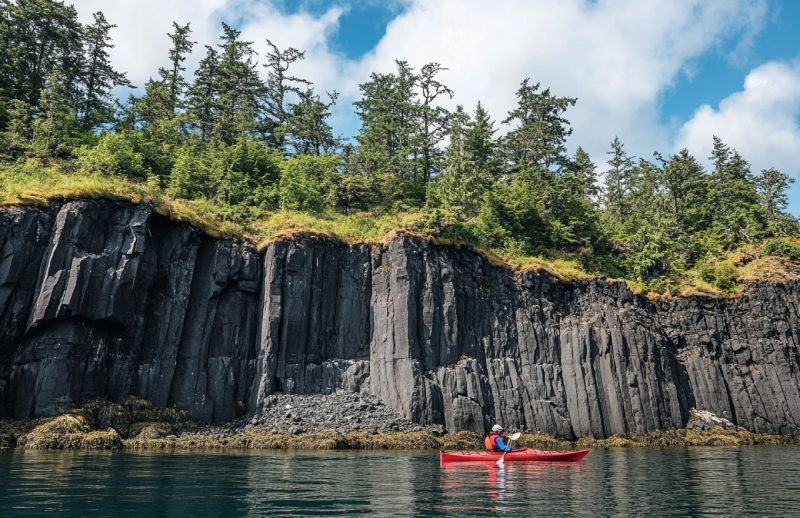
If paddling is frightening for you, make it normal while you are in Nootka Sound. It s worthy of mentioning that while paddling in the waters of Nootka Sound, you are given the pleasure of observing the birth point of BC, Yuquot. Nootka Sound is known as the paradise of the paddlers, and its island provides an extraordinary situation in which an astonishing adventure is waiting to be embraced.
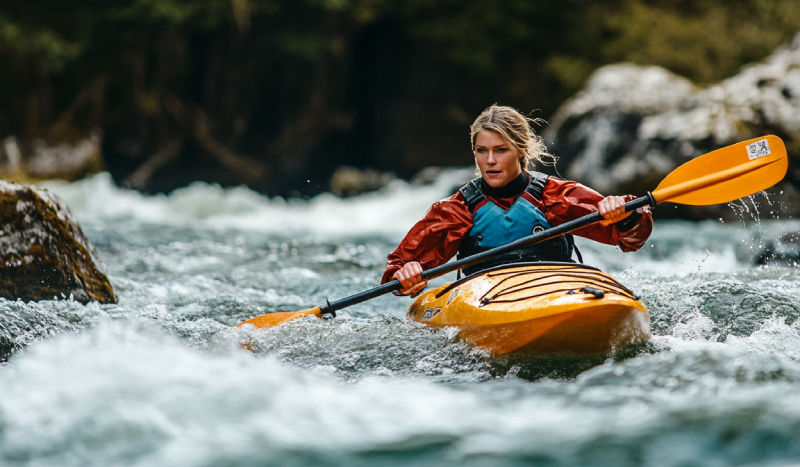
Gold River is an excellent destination for paddling by all means. There are ample reasons which can trigger you to go kayaking and canoeing in this river. Its crystal clear water allows you sea the beauties lied underneath the surface. Besides, kayakers and canoeists can have fun doing other activities along with paddling in the water.
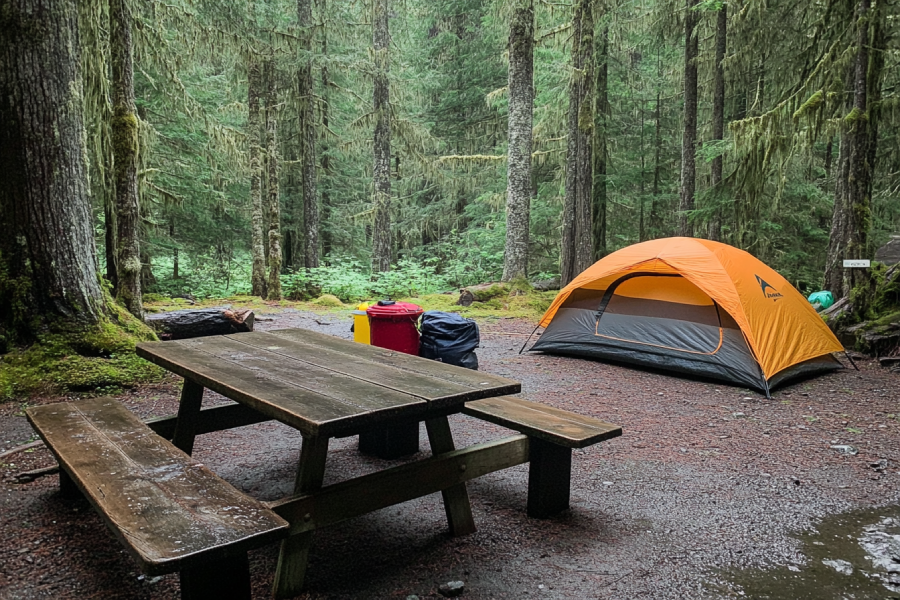
As the oldest provincial park on the island, Strathcona Provincial Park Campground will be a memorable wilderness adventure. Every day you spend on this beautiful campground is a different new day, for you can experience any adventure and never get sick of it. As a hot spot for camping, you are given a chance to choose the setting of your campsite.

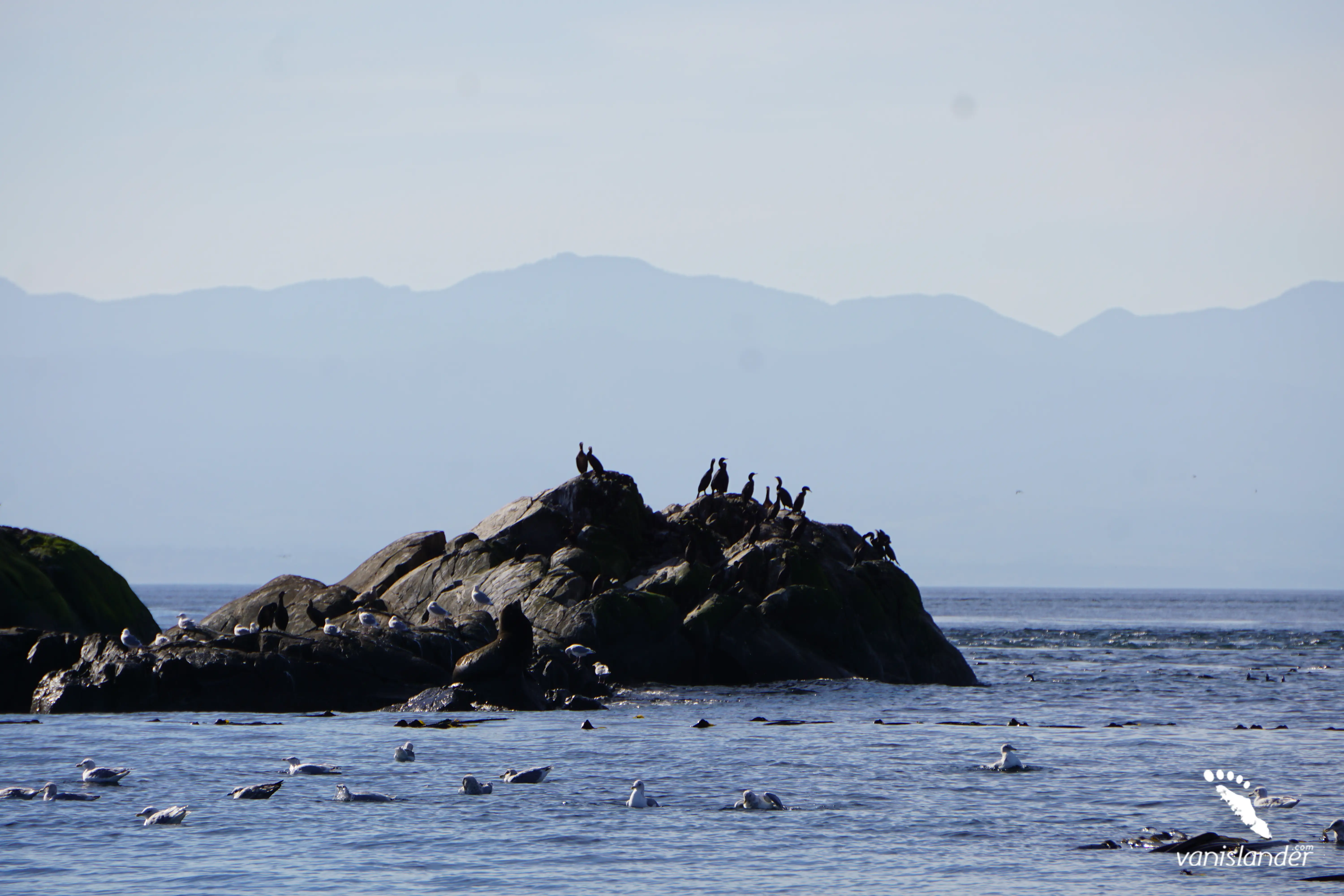
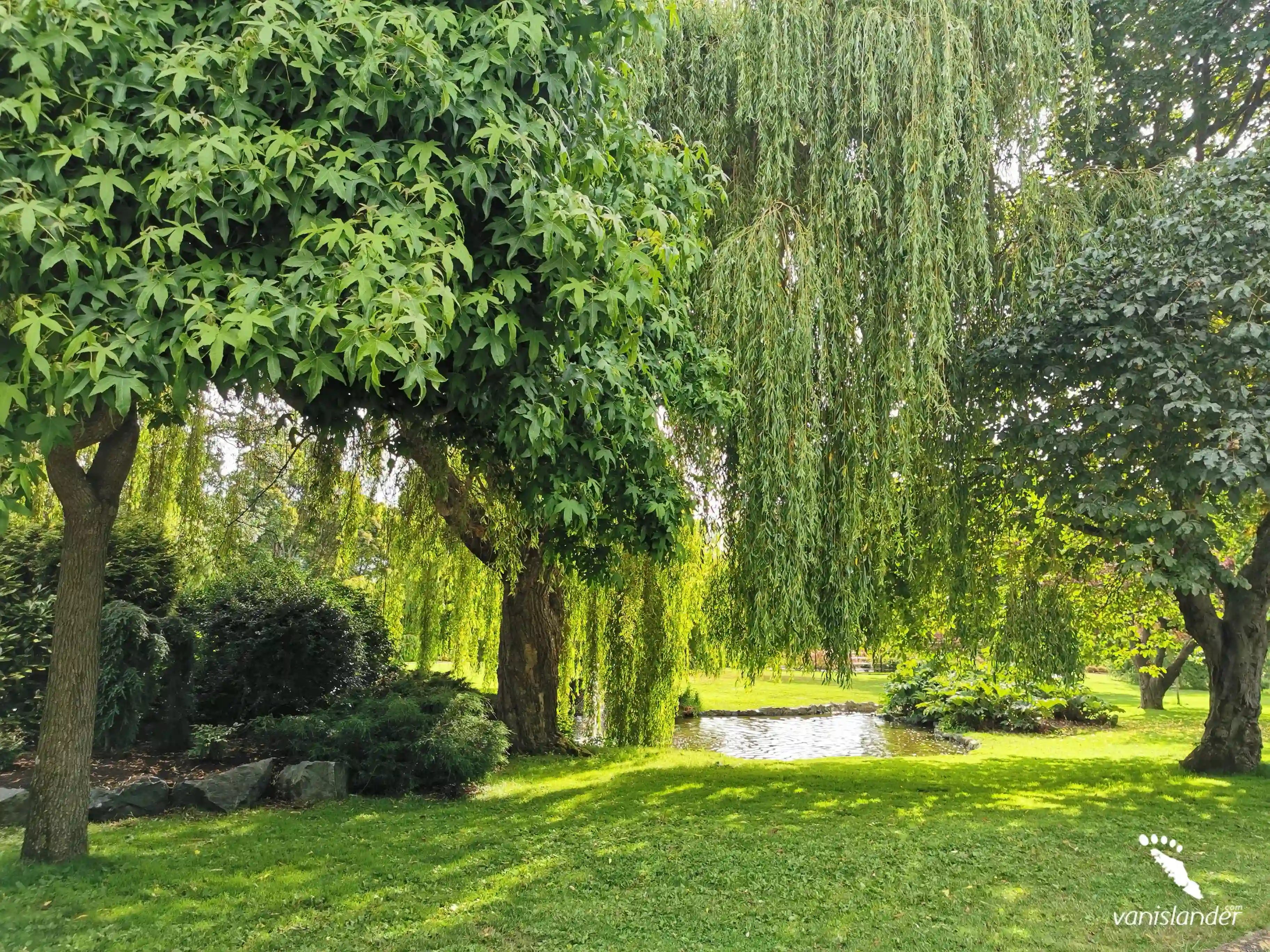
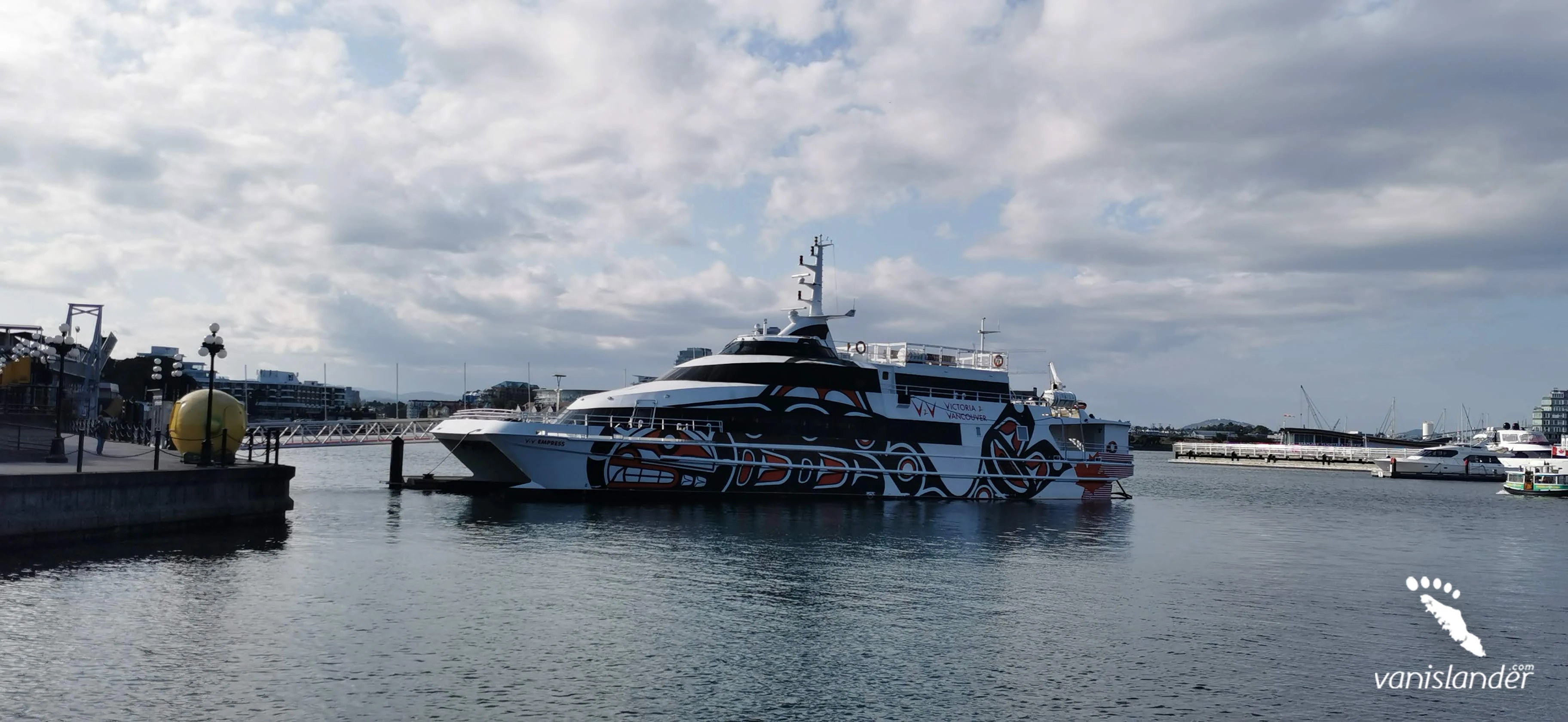
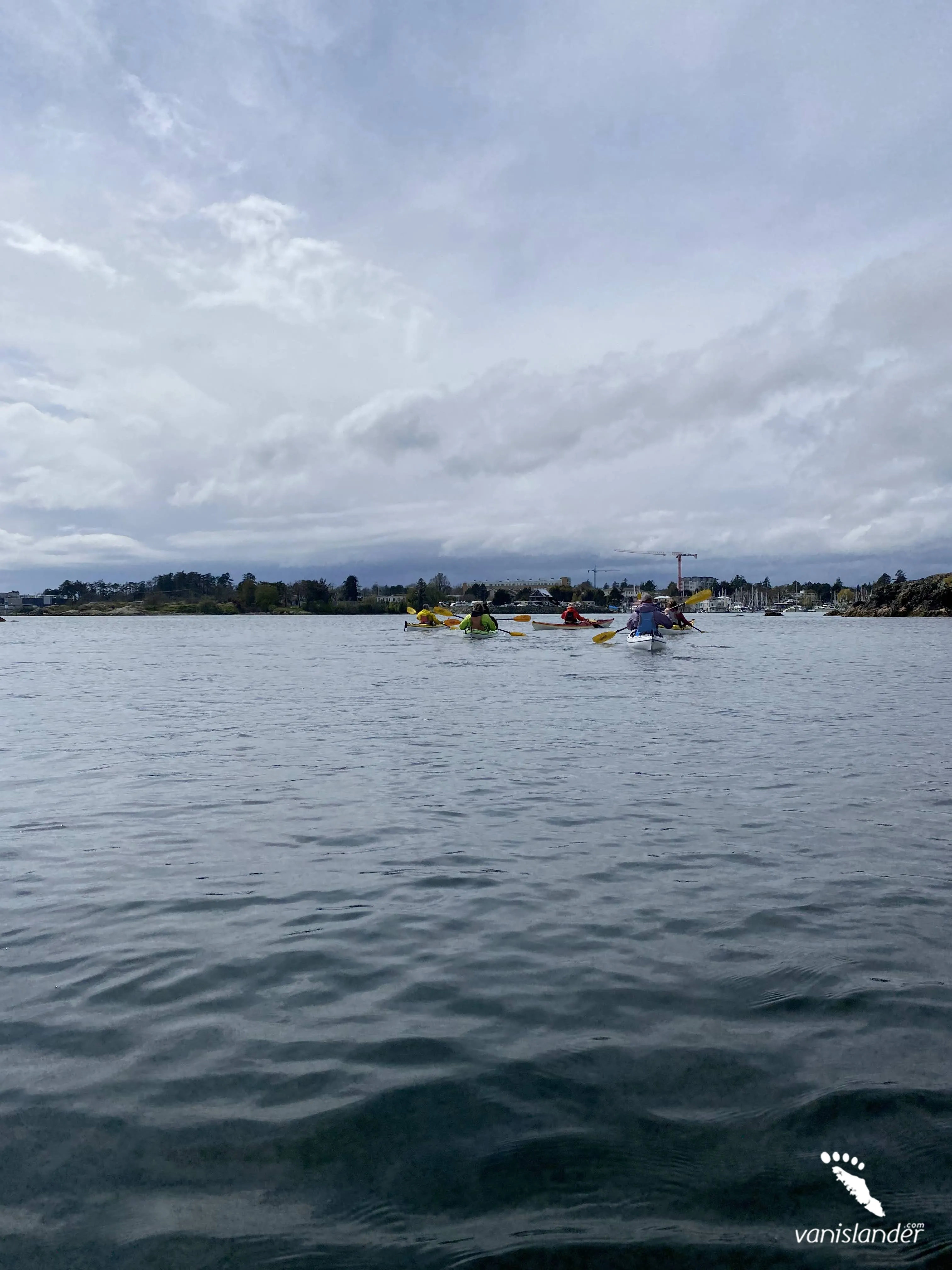
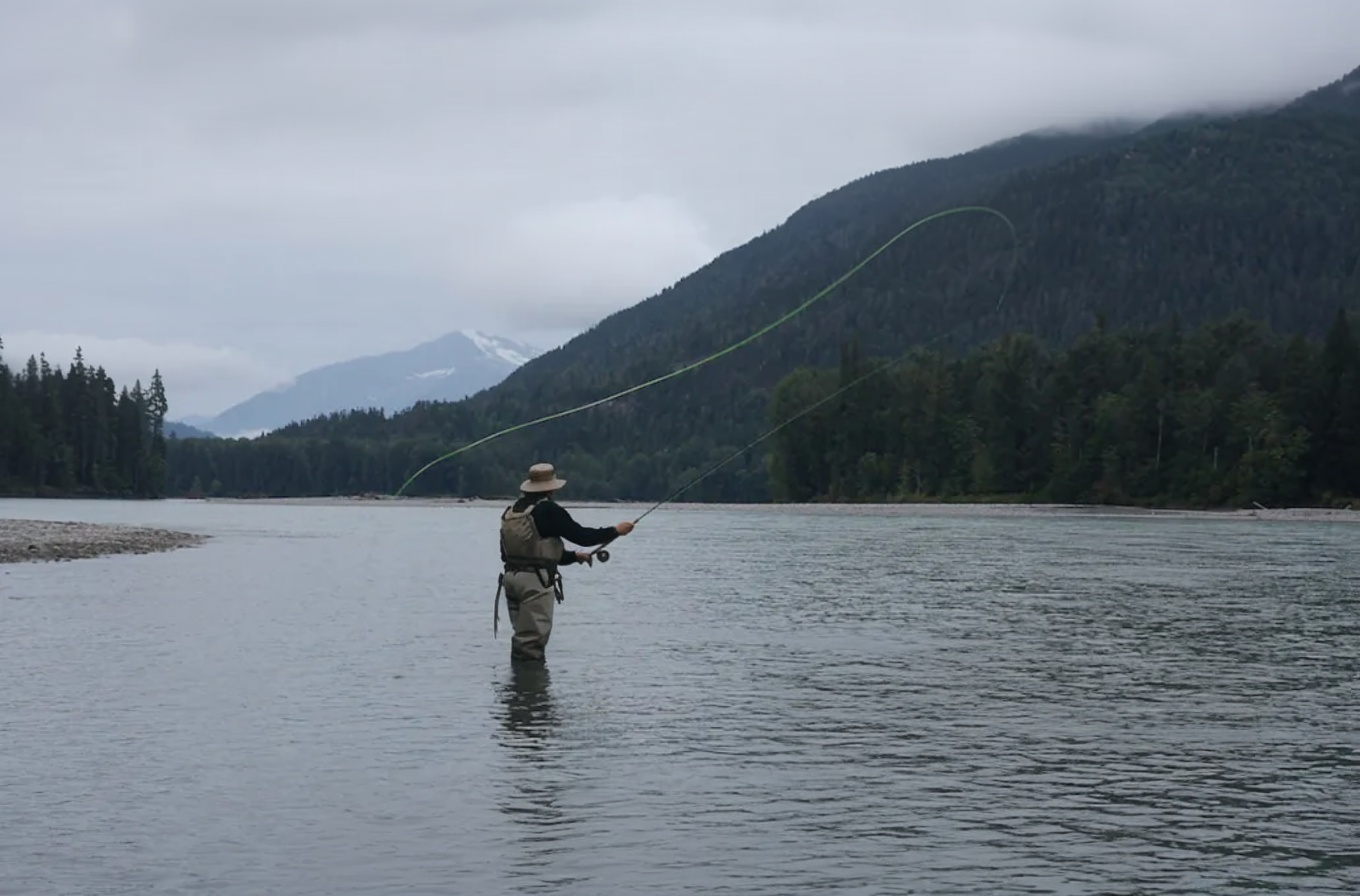
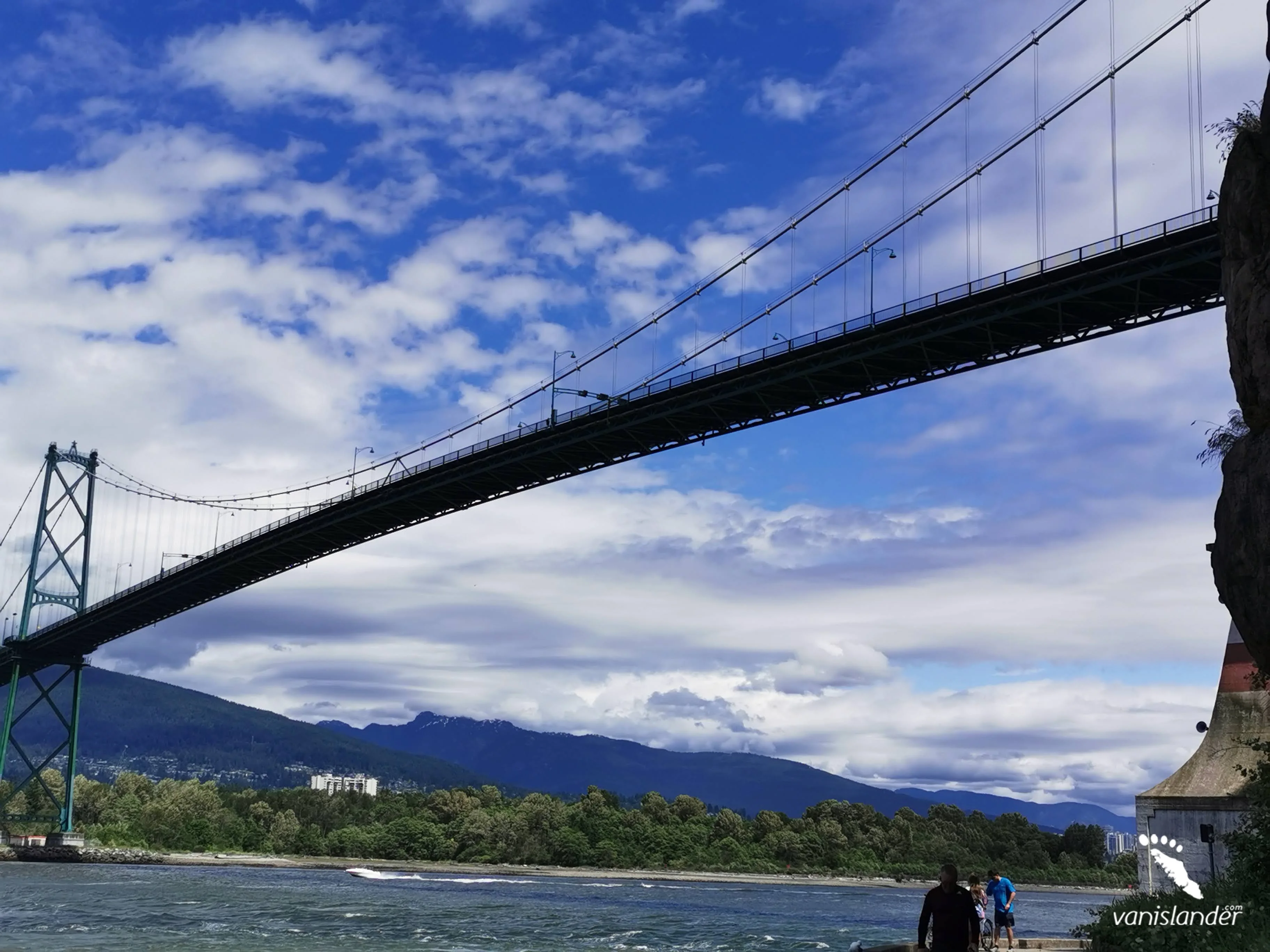
.webp)
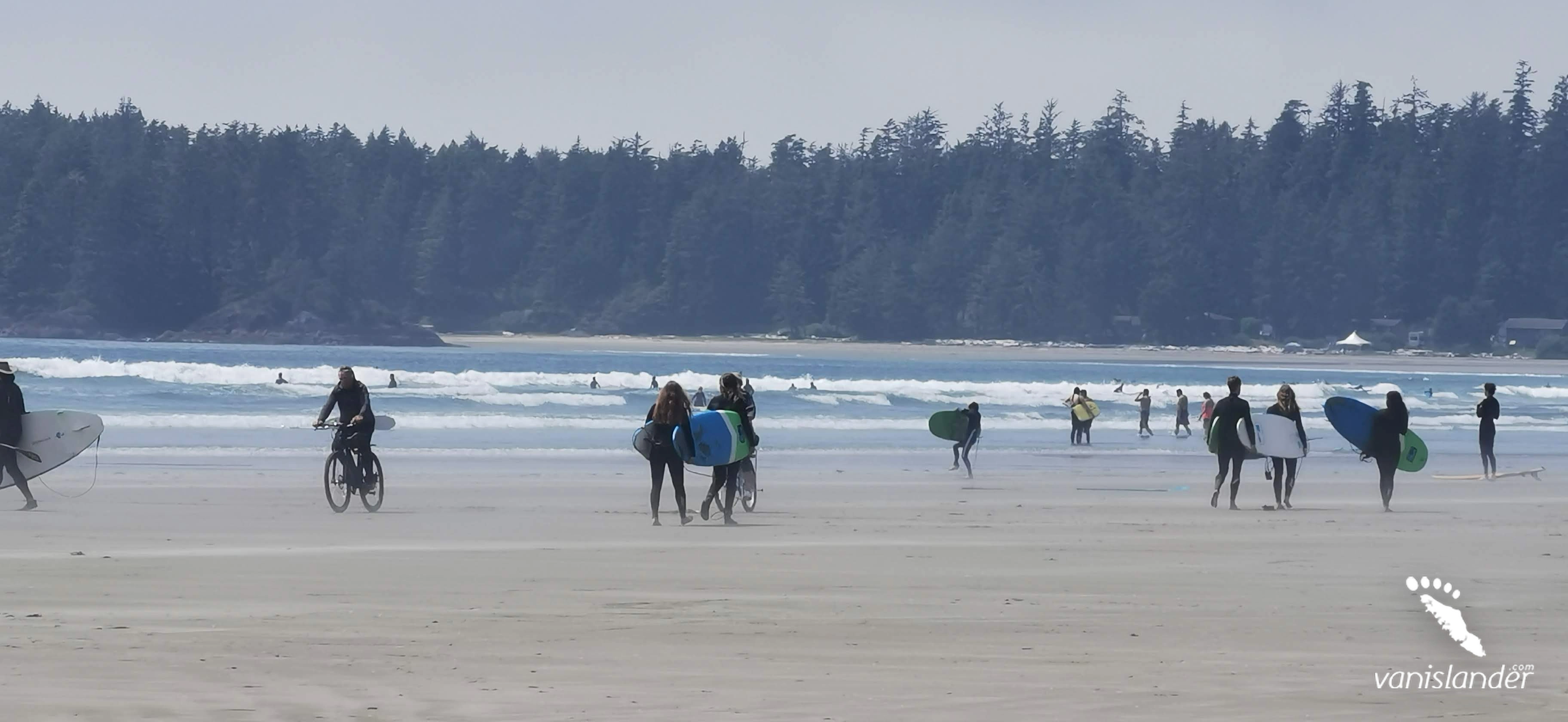
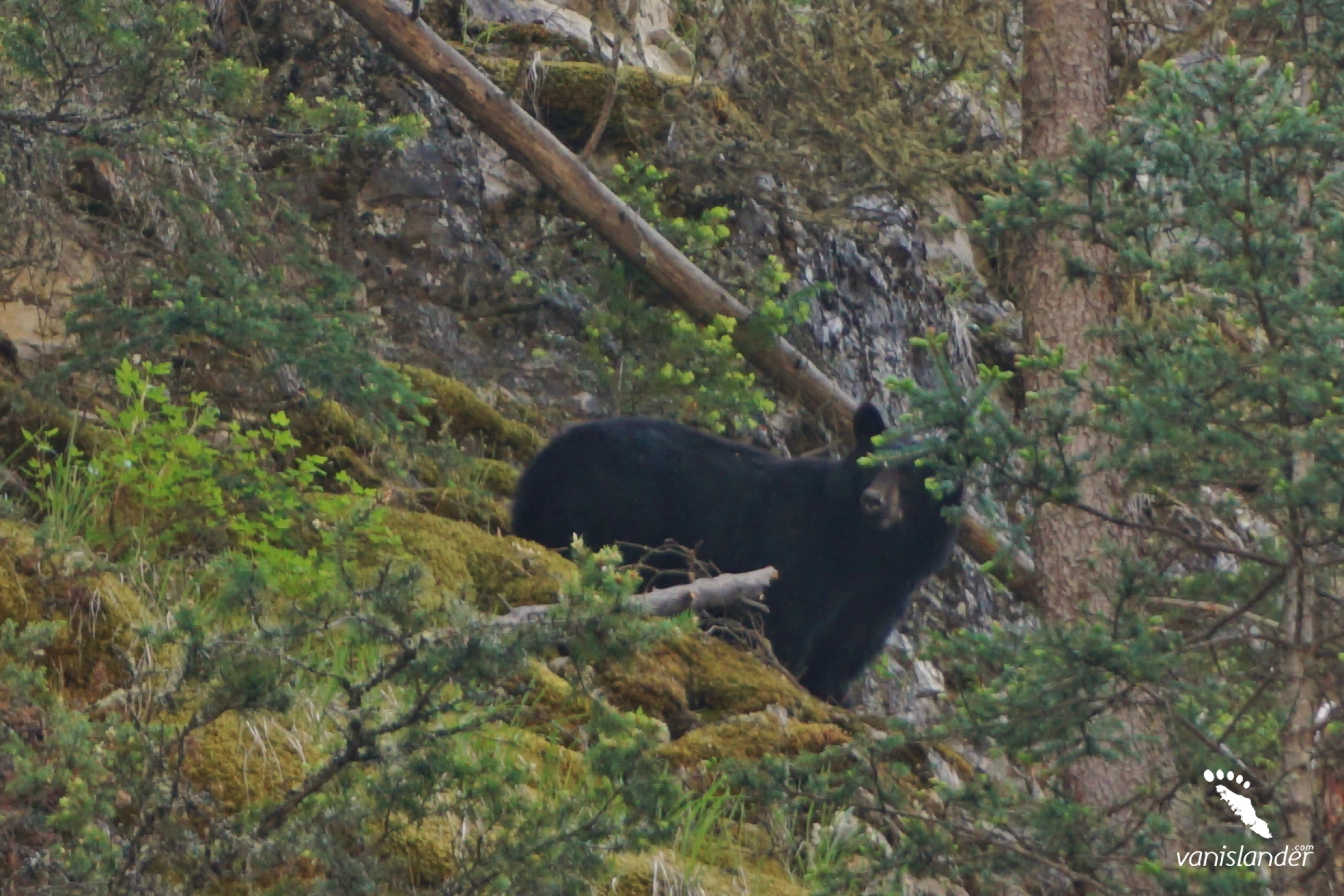
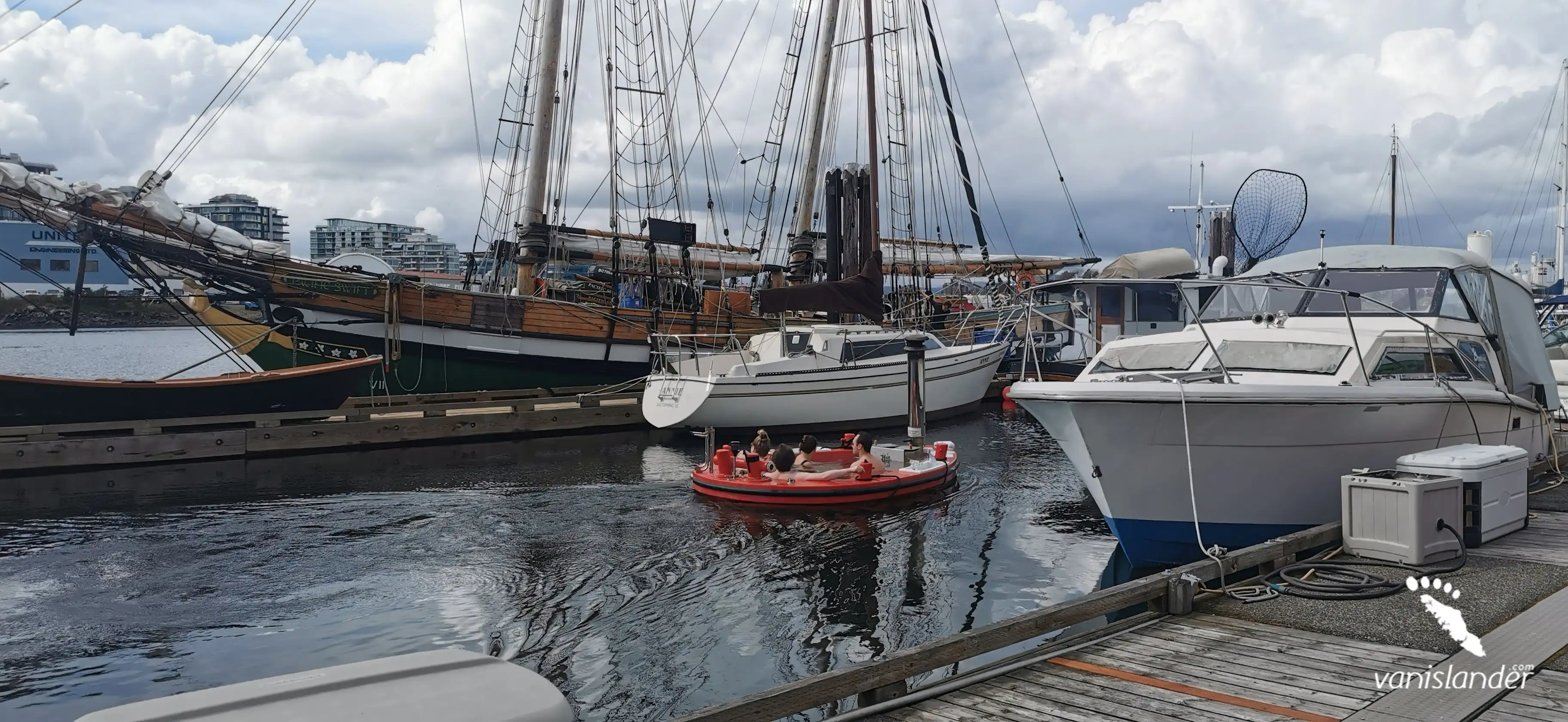
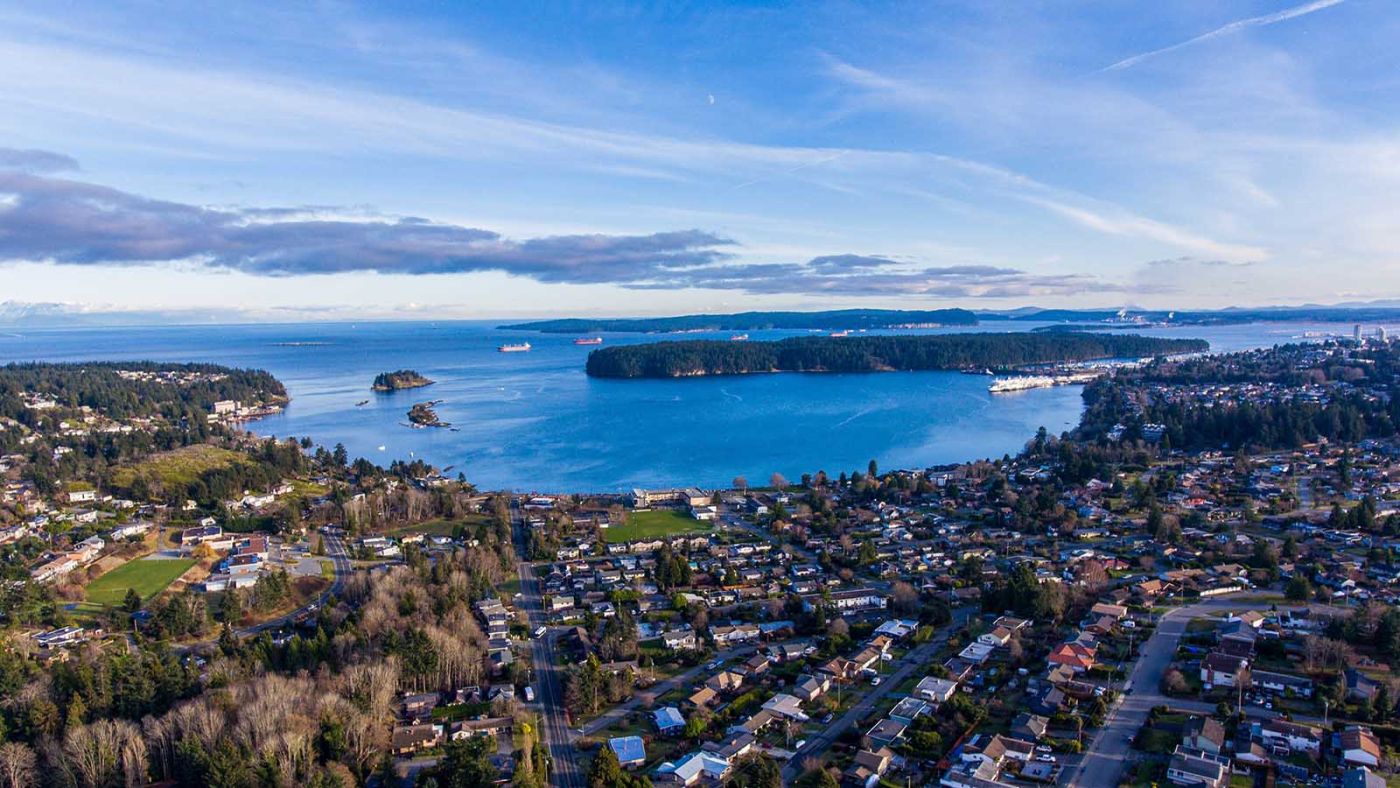
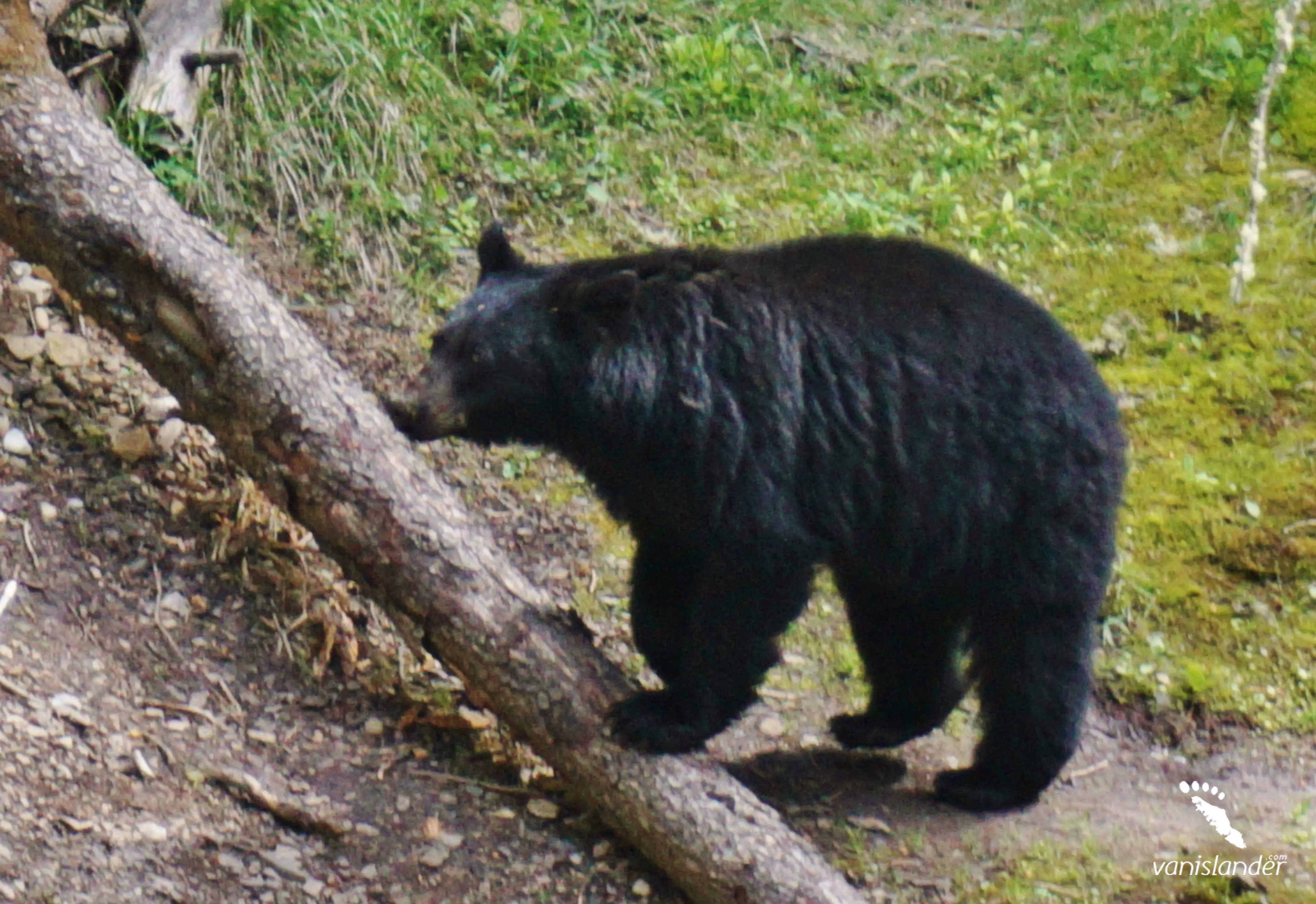
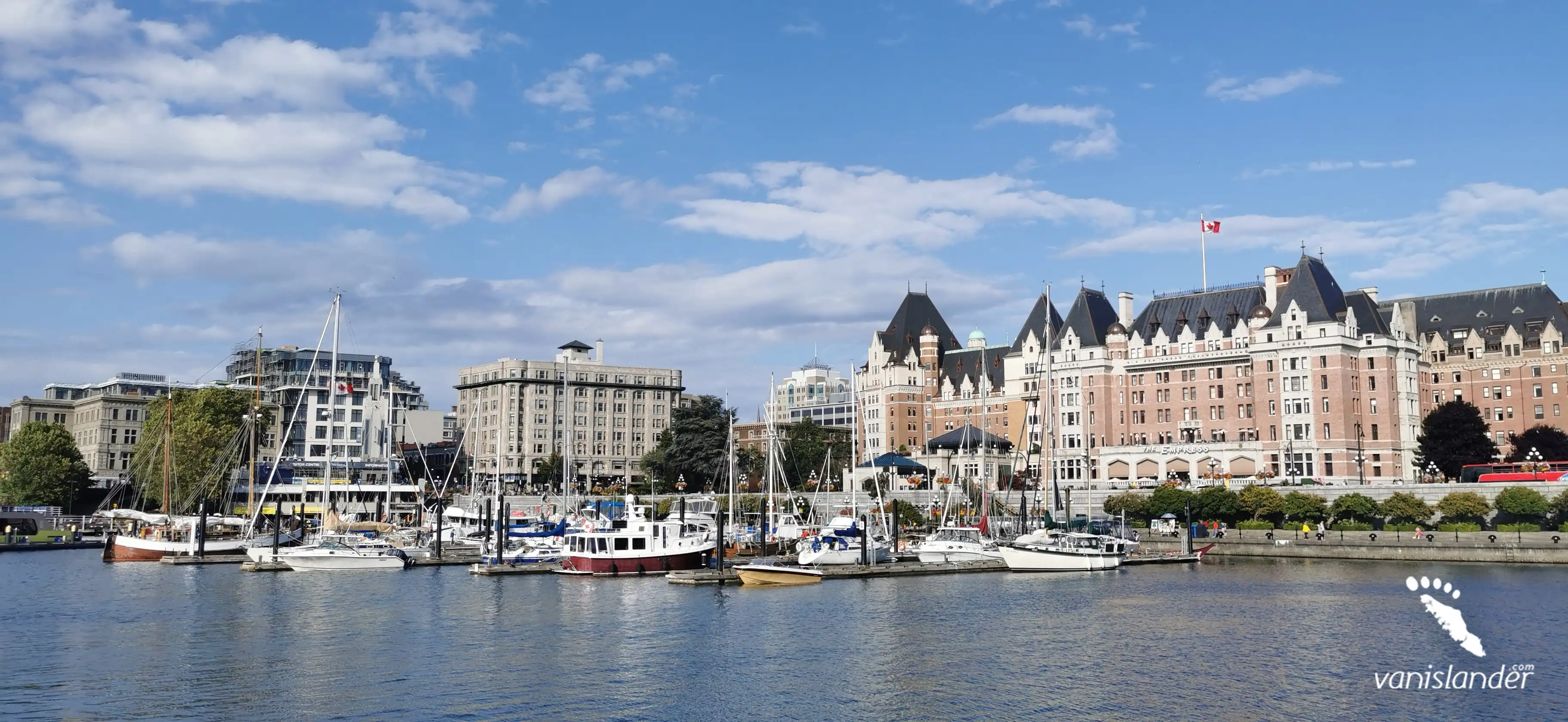
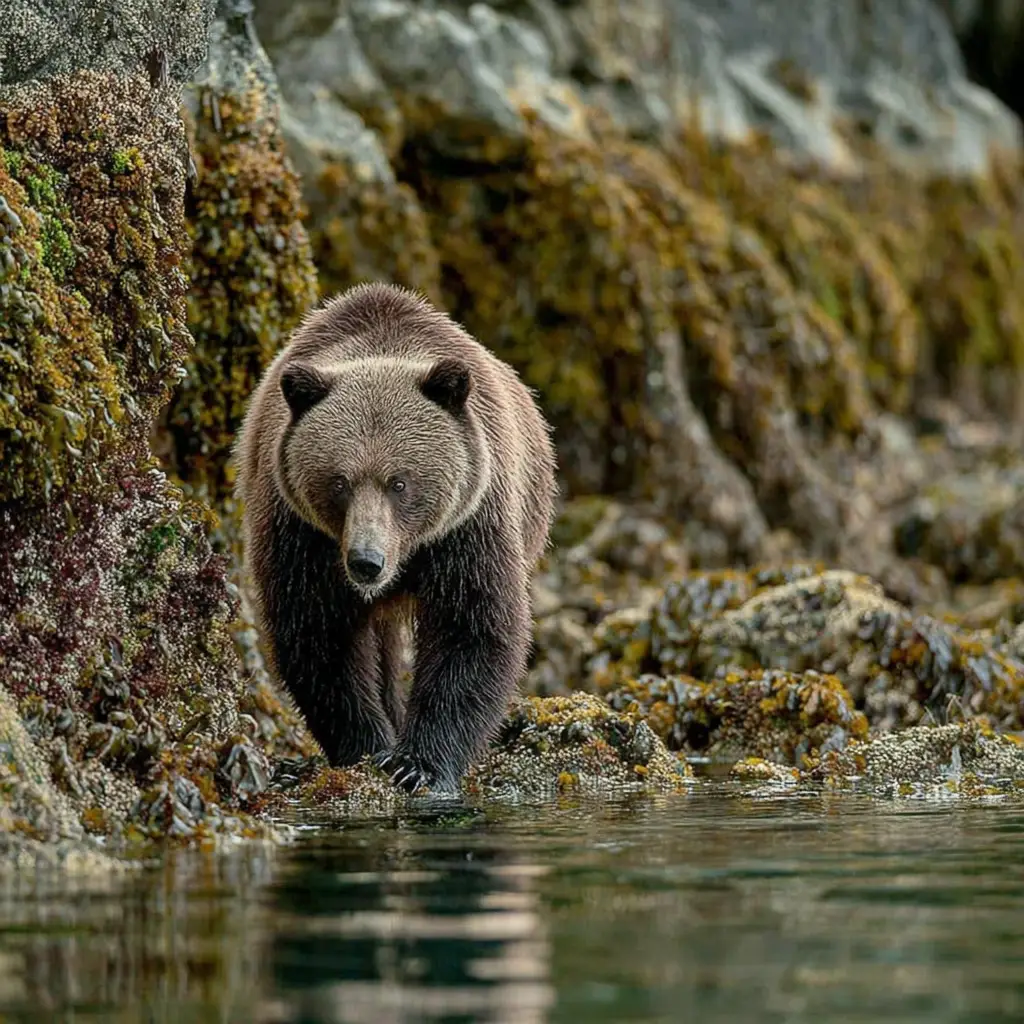

Kings Peak is a mountain peak that stands guard high in the Strathcona Provincial Park on central Vancouver Island. It is a double-peaked glacial mountain at 2065m (6775 ft.). The eastern peak is the higher one called Kings Peak, and the western one is Queen's Ridge. A demanding trail makes it to the summit of Kings Peak, offering scenic views. The trail starts at 304.8 m (1000 ft.), climbing 1737 m (5700 ft.) over scree fields, tree roots, undulating hills, gullies, and meadows. The first and lower portions of the trail are well-maintained gives the chance to warm up. It passes a couple of waterfalls and gorgeous streams where you can take a breather.
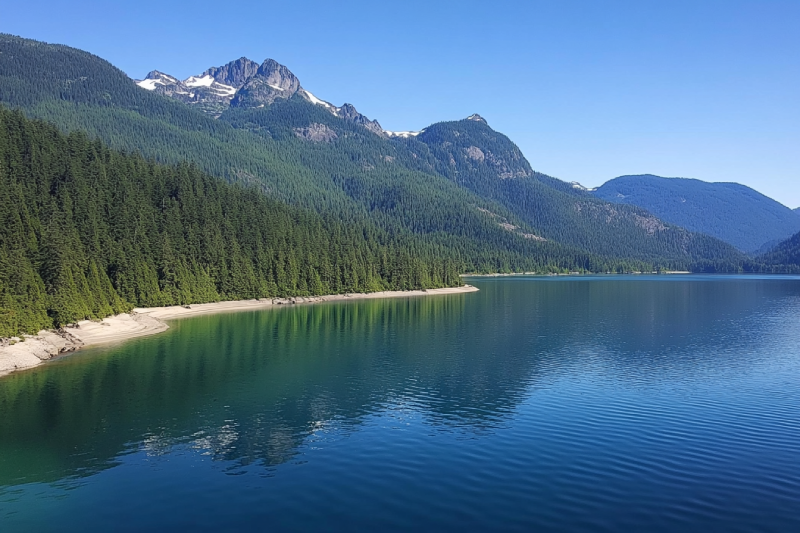
Are you struggling with spending a ton of time searching for the best family-friendly vacation? Then you need to visit Buttle Lake and get better results camping around it. Learn how Buttle Lake gives you an unfair advantage with camping, swimming, canoeing, kayaking, and fishing in Strathcona Provincial Park, the oldest provincial park on Vancouver Island.

Mount McBride with 2083 m (6834 ft.) height is the seventh highest mountain on Central Vancouver Island. Atop Mount McBride, the 360° panoramic view of Strathcona Provincial Park is rewarding, besides vistas of the highest mountains on Vancouver Island, including Golden Hinde, Mt Colonel Foster, King's Peak, Elkhorn Mountain, and Rambler Peak.

Elkhorn Mountain is located in the Elk River Mountains of the Vancouver Island Ranges. It is the second-highest peak on Vancouver Island at 2194 m (7198 ft.) elevation. Atop of the Elkhorn Mountain, the commanding views of mountain peaks surrounding overlooking the Pacific Ocean and the Strait of Georgia are rewarding, as well as splendid Strathcona Provincial Park.
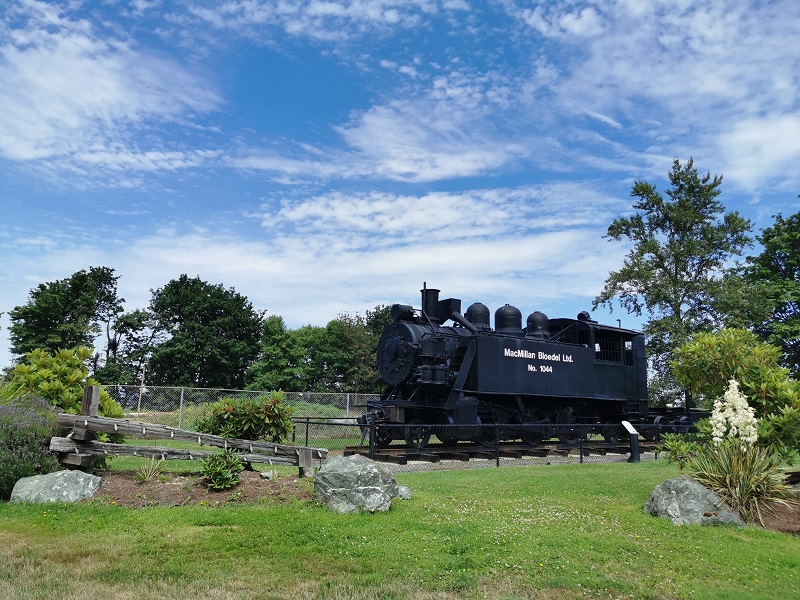
Going deep into the forest is worthy enough to visit the stunning Upana Caves. Listen to the sound of a river passing by and detect several entrances with the famous one behind the spectacular Upana Caves Waterfall. Inside entrances, you may find birds' nests. Watch the evidence of years of existence by holes like the one in cheese. The stunning galleries and passages you'll explore while going down would be incredible.

The Pierce Range is small and steep-sided in the center of Vancouver Island. Hikers can pass through trees covering steep hills packed with bountiful wildlife and colourful birds winding around lakes and tarns along creeks and rivers. Up at the peaks, the scenery is surrounded by mountains. Spectacular views overlooking the Muchalat channel and Victor Island is inspiring.

The Elk River Mountains is a group of rugged mountains in Strathcona Provincial Park suitable for camping and outdoor activities. Elkhorn Mountain is the highest peak of the mountains and the second-highest peak on Vancouver Island. It is an extraordinary destination for professional and amateur climbers; the difficulty is from simple to somehow challenge slopes.
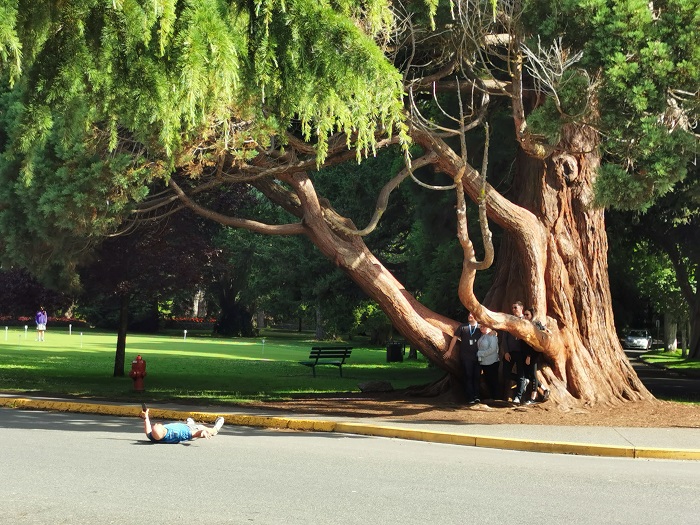
Strathcona Provincial Park is a large mountainous natural park and the oldest provincial park in British Columbia. Excellent hiking trails, coastal areas, lakes, creeks, waterfalls, snow-capped peaks, and wildlife made this park a perfect destination for adventurous travellers. Summers are usually pleasantly warm, and winters are almost mild except for the higher levels. So, it is a great place to recharge.
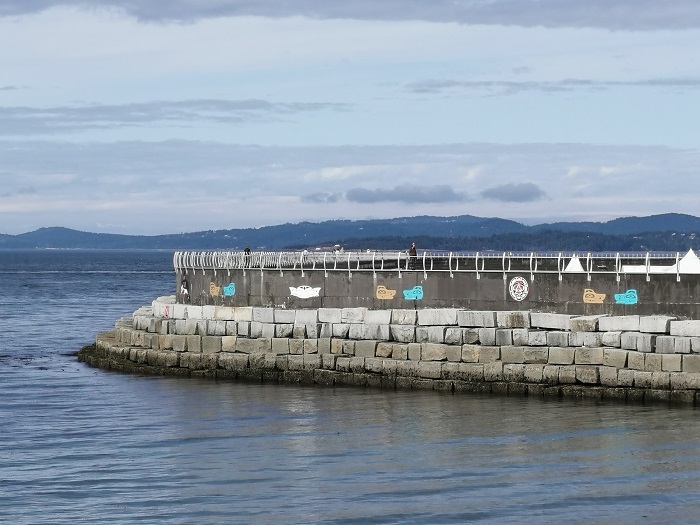
Words cannot describe Lupin Falls because this waterfall's beauty is beyond the world of vocabulary. The water pours gracefully on rocks and carving its way into the hard rock cliff. A forest surrounds the two drops of Lupin Falls and adds to its wonders. Visiting Lupin Falls is a big bonus as it is placed in Strathcona Provincial Park with a lot to offer.

Find peace at the bottom of a waterfall where there will be the magic of nature all around you. Lady Falls is a rare sight of beauty and grace. The crystal clear water runs through a lush forest, reaches a rock cliff surrounded by trees, and pours down into a canyon. From afar, it feels like the water is cascading from the trees. The combination is enough for cleansing the mind, soothing the soul, and being there for hours.
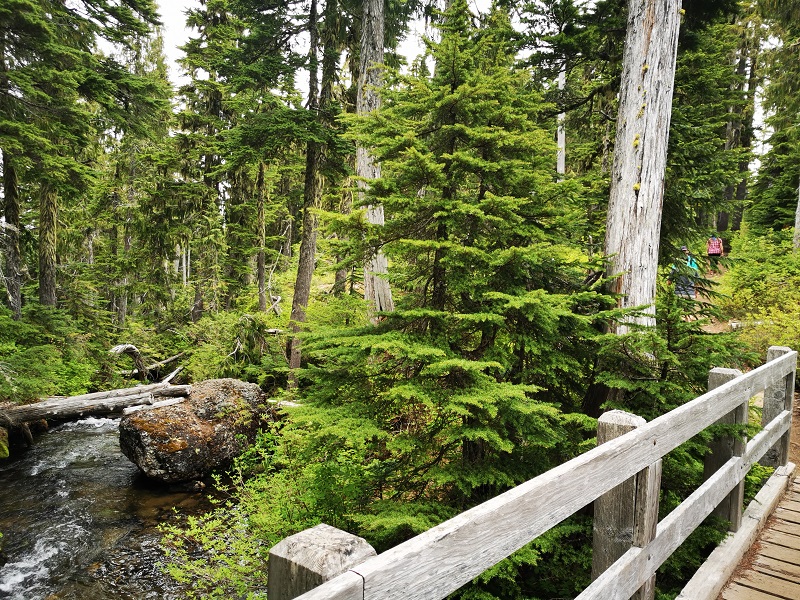
In the south end of Buttle Lake at Strathcona Provincial Park, you can find Myra Falls (or Lower Myra Falls), a Jewel of natural wonders. This seven-drop waterfall is beautiful all year round, and it feels like you're in a land of fantasy. The tremendous view of the place and shades of green and blue of the pool under the falls make a great scene perfect for photography.